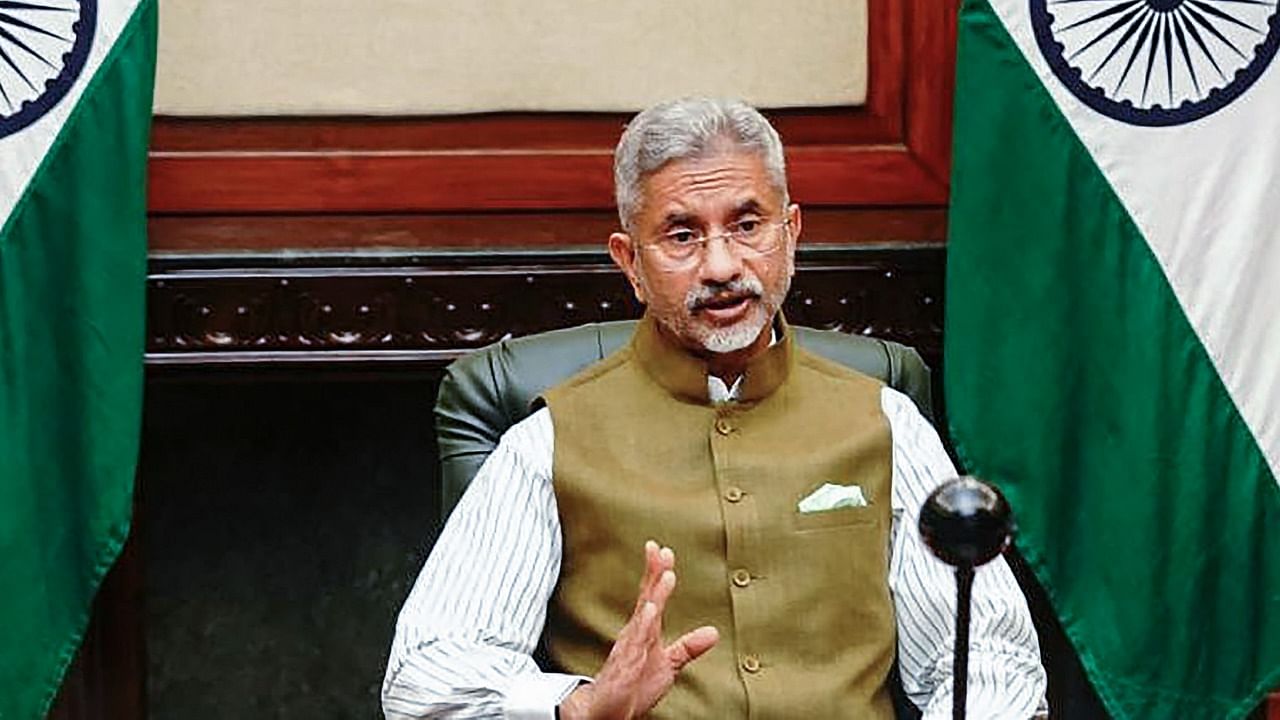
India is set to join Israel, the United Arab Emirates and the United States to launch an international forum for economic cooperation as a virtual meeting among the foreign ministers of the four nations has sowed the seeds of a new 'Quad'.
External Affairs Minister S Jaishankar and Israeli Foreign Minister Yair Lapid joined the US Secretary of State, Antony Blinken, and the UAE Foreign Minister, Abdullah Bin Zayed Al Nahyan, in a video conference late on Monday. The virtual meeting ended with the decision to launch an international forum for economic cooperation to harness the “unique array of capabilities, knowledge and experience” of the four nations, Lapid was later quoted in a tweet by the Ministry of Foreign Affairs of the Government of Israel.
India's move to join the US, the UAE and Israel in a new quadrilateral consultation reflected its keenness to take advantage of the Abraham Accords to deepen engagement with Israel without risking its relations with the UAE and the other Arab states of the Persian Gulf.
Lapid also said that the “Quartet” of the foreign ministers held a discussion on the possibility of jointly building infrastructure in the fields of transportation, technology, maritime security, economics and trade apart from exploring other joint projects.
Jaishankar later called the video conference with his counterparts in Israel, the UAE and the US “a fruitful first meeting”, thus indicating that it was not a one-off consultation and the four nations would continue to remain engaged in the quadrilateral format. He tweeted that the virtual meeting ended with all sides agreeing on “expeditious follow-up” to the discussion they had on “working together more closely on economic growth and global issues”.
Ned Price, the spokesperson of the US State Department, said that the four sides had discussed “expanding economic and political cooperation in the Middle East and Asia, including through trade, combating climate change, energy cooperation, and increasing maritime security”. They also discussed people to people ties in technology and science and ways to support global public health in view of the Covid-19 pandemic. Blinken reiterated the support of the US President Joe Biden’s administration support for the Abraham Accords and normalization agreements and discussed future opportunities for collaboration in the region and globally.
The Abraham Accords are the pacts Israel inked with Bahrain and the UAE in September 2020. Biden’s predecessor Donald Trump’s administration played a key role in getting the agreements signed and thus setting in motion the process of normalization of Israel’s relations with the UAE and Bahrain. India welcomed the Abraham Accords, stating that it always supported peace and stability in West Asia – a region, which it considered as its “extended neighbourhood”.
India-Israel counter-terrorism and defence cooperation widened over the past few years. Israel has been one of the largest suppliers of military hardware to India. India’s energy and economic ties with the UAE also expanded significantly. The UAE has also been quietly mediating between India and Pakistan and facilitated back-channel talks between the two neighbours last year.
New Delhi is also confident about balancing its ties with Iran and Israel. Jaishankar had two back-to-back visits to Tehran in July and August and extended an invitation on behalf of Prime Minister Narendra Modi to the new Iranian President Ebrahim Raisi for an early visit to India.
This was the second quadrilateral consultation with participation of India and the US, which in 2017 also re-launched another four-nation coalition with Japan and Australia, primarily to build a coalition of democracies to counter communist China’s expansionist aspirations in the Indo-Pacific region.
India's latest move to join Israel, the US and the UAE in the new quad signalled its willingness to continue to pursue the policy of entering into small regional groupings to expand its orbits of influence.
Check out DH's latest videos
